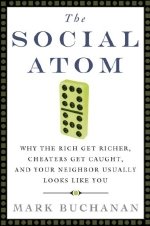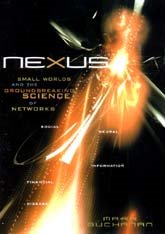No more Stanley Fish after this, but you've got to read his latest outburst on religion to believe it. He's essentially recycling and twisting around the old argument of St. Anselm that God, if you define Him as that thing "than which nothing greater can be conceived," simply must exist. Here's the logic: If He didn't exist, then we could quickly conceive of something greater -- namely an identical He that does exist. That's a contradiction. Therefore God must exist.
If that seems like a swindle, it is. There is, to begin with, the arbitrary judgement that something that exists is greater than something that does not. But also, take the loaded word "God" out of the equation. Can you really prove that "the greatest thing that can possibly be conceived" must exist? Very possibly there just is no sense to the very notion of the "the greatest thing that can possibly be conceived". After all, how about two or four of those things put together, wouldn't they be still greater, meaning there can be no greatest thing we can conceive? In fact, we could use the same kind of argument to disprove God. If He's the greatest thing that can be conceived, then He cannot exist, because there can be no greatest thing that can be conceived.
Fish's argument isn't quite the same, but he takes the view that maybe there are some things that just lie beyond any possibility of scientific investigation. And maybe that's where God resides. The trouble is, if God really does lie (safely) beyond any conceivable scientific investigation, this also implies that whatever He does can have absolutely no effect in our world, and can leave no traces within it (for otherwise we could detect and measure them). He can have no effect. The consequence of pushing Him off the physical stage (so as to salvage your belief, despite the lack of any evidence) is also to acquiesce in the conclusion that God can have no influence on anything in our world whatsoever. Some God.
But actually, I think all this arguing over religious belief is rather ridiculous. People don't believe in God or in gods for reasons. I suspect that we'll eventually understand that belief has clear social and psychological functions, as many scientists already suggest, here, for example, or here.
The latter paper, in particular, offers a nice review of several popular hypotheses, such as that religion plays a role in 1) helping communities to interact successfully with their environments (and to avoid ecological catastrophes), 2) that committing oneself to clearly irrational beliefs is a form of what biologists call "costly signalling," and can enable people within a community to establish cooperative interactions more successfully (in fact, some studies show that religious groups do tend to have higher levels of cooperation than non-religious groups), or 3) that the belief in unseen powers and forces is the hangover from ways of thinking about the world and looking for causal relations that were adaptive for our ancestors.
Rather than trying to banish religion, or argue people out of it, we should try to understand the deeper function of belief. Yet I somehow suspect this idea holds little attraction for Stanley Fish.
Thursday, June 28, 2007
Does God do anything?
Subscribe to:
Post Comments (Atom)




14 comments:
I think it's important to note that nowhere in the three articles that he has published on The Times website has Professor Fish espoused a belief in God. In fact, in the most recent post, he specifically denies espousing an opinion at least twice.
His concern is the arguments made by three specific books that attack religion and champion atheism. This has led to an automatic backlash from self-professed atheists that assume some sort of belief on his part that he does not claim. I suspect that this backlash is going to turn out to be part of what he was driving at.
I think he's talking about fundamentalism and using atheism as an example of a fundamentalist belief system. I think he's also looking at various texts--including the Bible--as literary artifacts that can be decoded for meaning in a variety of ways.
I'm expecting one more post from him on this subject, but I could be wrong about that. I find that not improbable.
I have yet to see a psychologist theorize about the advantage conferred by religion in terms of group or social identity (though the commitment theory mentioned in the Dow paper flirts near the edge of it.)
Dow defines religion as the "communication of a world view, or a created reality, that people develop as a group." He goes wrong when he assumes that these must develop first in the imagination of a founder. We know that humans are quick to form groups based on the most random kinds of similiarty (for example, based on an expressed preference in art, Tajfel) and then act in predictable ways based on those groups. People attack out-group members and shower in-group members with resources. We all do this group identification automatically, quickly and unconsciously . We also know that humans experience physical pain and negative psychological consequences upon being excluded from a group (see work by Roy Baumeister).
Thus, it seems to me that Religion provides an external supernatural agency (God) who lends higher authority for the behavior of those who share a group identity: "We are the people who believe...." It defines who is in the In-group and sets down rules or guidelines for behavior among the members of the In-group (for example, we will not covet an In-group members wife or we will gather once a week to sing songs together.) It also lends authority to the In-groups behavior towards Out-group members (for example, our tribe can slaughter out-group members and take over their land because God says that is our right.)
It clearly has evolutionary value for a group, and it does not require a founder.
Len,
You're right, and I take your point. Professor Fish has focused on the logic of various arguments, and hasn't yet revealed the nature of his own beliefs..
I'm not sure precisely what a fundamentalist belief system entails, but I assume it would include the unwillingess even to entertain certain kinds of propositions. Believers, through faith, "know" that God exists and cannot consider the possibility that he does not. For atheists, I think, the story is rather different; they (we, as I'd count myself one of them) claim that we're willing to accept and believe absolutely anything, God, no God, 68 gods, anything, just so long as we are brought to such beliefs on the basis of evidence. From a strictly logical point of view, I suppose one could say that this is fundamentalist...but (it seems to me) of a very weak sort...
Mark
But it is exceedingly difficult (impossible?) for any of us to be completely dispassionate in our reasoning. I suspect we often find our conclusions emotionally and then create the reasons to justify ourselves afterward. ationalI'd be very surprised if he doesn't have religious faith.
Mark--
I think Professor Fish is an old sophist who hides his meanings and intentions in a deep, dark forest of words. I honestly think he's been setting a trap for the commenters that he's getting ready to spring, a kind of pedagogic practical joke. But that's just a guess based on his posts and a quick read about him in Wikipedia.
I completely agree with your observation about how people reach a conclusion and then rationalize their way back. We are strange, strange creatures!
Personally, I take a Taoist approach that says, "He who says he knows does not know. He who says he doesn't know is wise indeed!"
I'm hoping someday to not know as much as I think I do today.
Mark,
You wrote that if God lies beyond all scientific investigation, then he can have no effect at all in our world. I wish I could convince myself that your argument is sound and live happily ever after as an atheist. Transcendentalists, as you know, argue that God transcends space, time and causality and is, therefore, not amenable to our investigations that are based on these concepts. However, he does influence our world through the agency of his laws, which, after processing through our notions of space, time and causality, we perceive as the laws of nature.
Religion as a survival mechanism. That would mean atheists must do without this advantage and suffer the evolutionary consequences.
You wrote: "But actually, I think all this arguing over religious belief is rather ridiculous. People don't believe in God or in gods for reasons."
I do and in the page bloganders.blogspot.com (in the left menu) you will find a proof which proves the existence of a Creator and His purpose of humankind.
Anders Branderud
Well I think that the universe and the quantum are to perfect and infinite for be made by a "god" or a divine person, the universe has always existed there is no beginning and no end, we are just a cycle within a cycle within a cycle.
It cannot succeed as a matter of fact, that's what I suppose.
My brother suggested I might like this web site. He
was entirely right. This post actually made my day. You can not imagine
just how much time I had spent for this information!
Thanks!
Take a look at my web page - Best weight loss diet
I just like the helpful info you supply for your articles.
I'll bookmark your weblog and take a look at again here frequently. I am quite sure I'll learn
a lot of new stuff proper right here! Best of luck for the following!
Here is my webpage : effective weight loss
This article presents clear idea for the new visitors
of blogging, that really how to do blogging.
Here is my website - cheap shoes
Exceilent blog you have here but I was curious about if you knew of any community forums that cover the same topics talked about in this article? I’d really like to be a part of online community where I can get advice from other experienced individuaIs that share the same interest. If you have any suggestions, please let me know. Appreciate it!
I was about to say something on this topic. But now i can see that everything on this topic is very amazing and mind blowing, so i have nothing to say here. I am just going through all the topics and being appreciated. Thanks for sharing.
Post a Comment